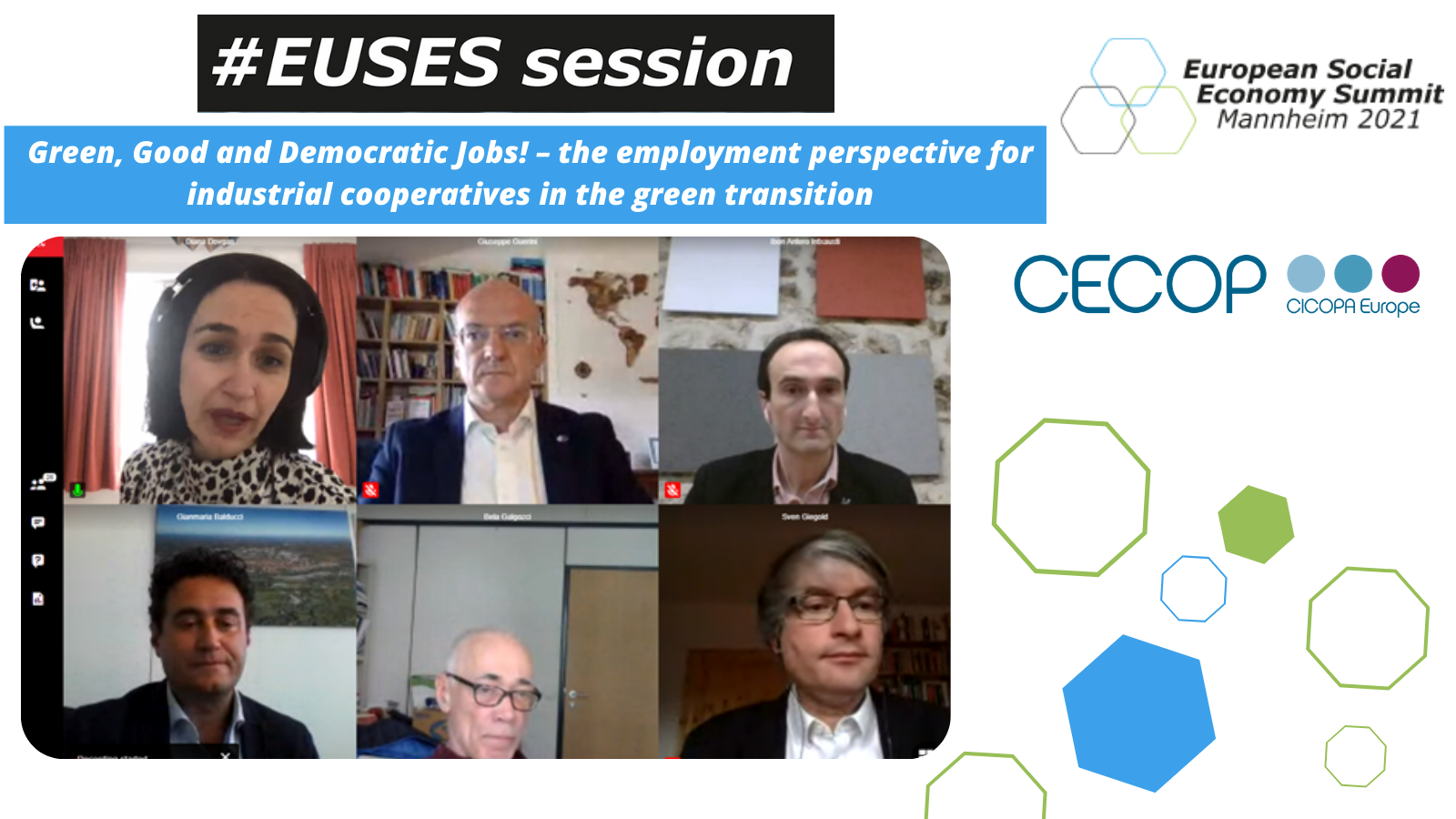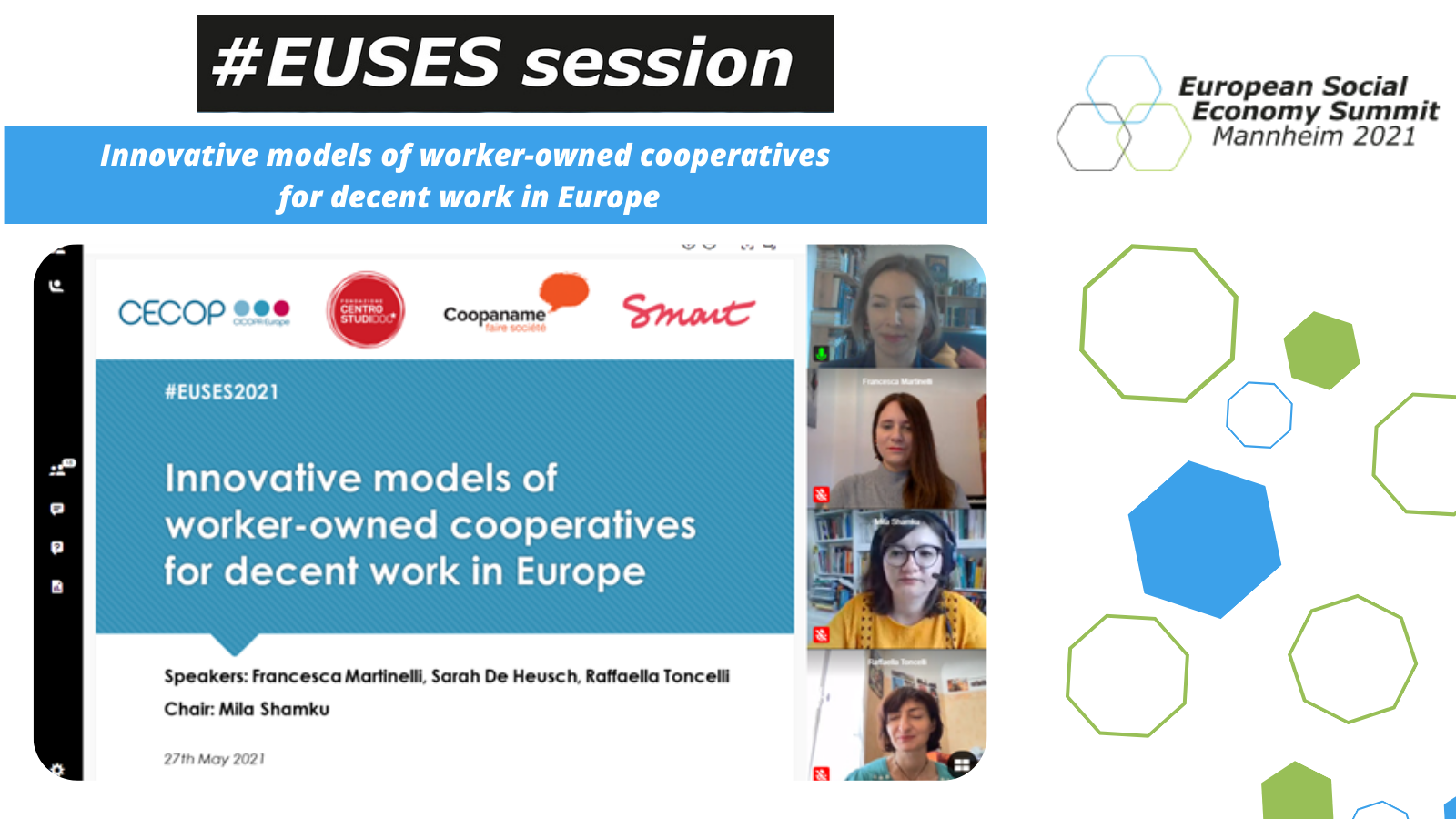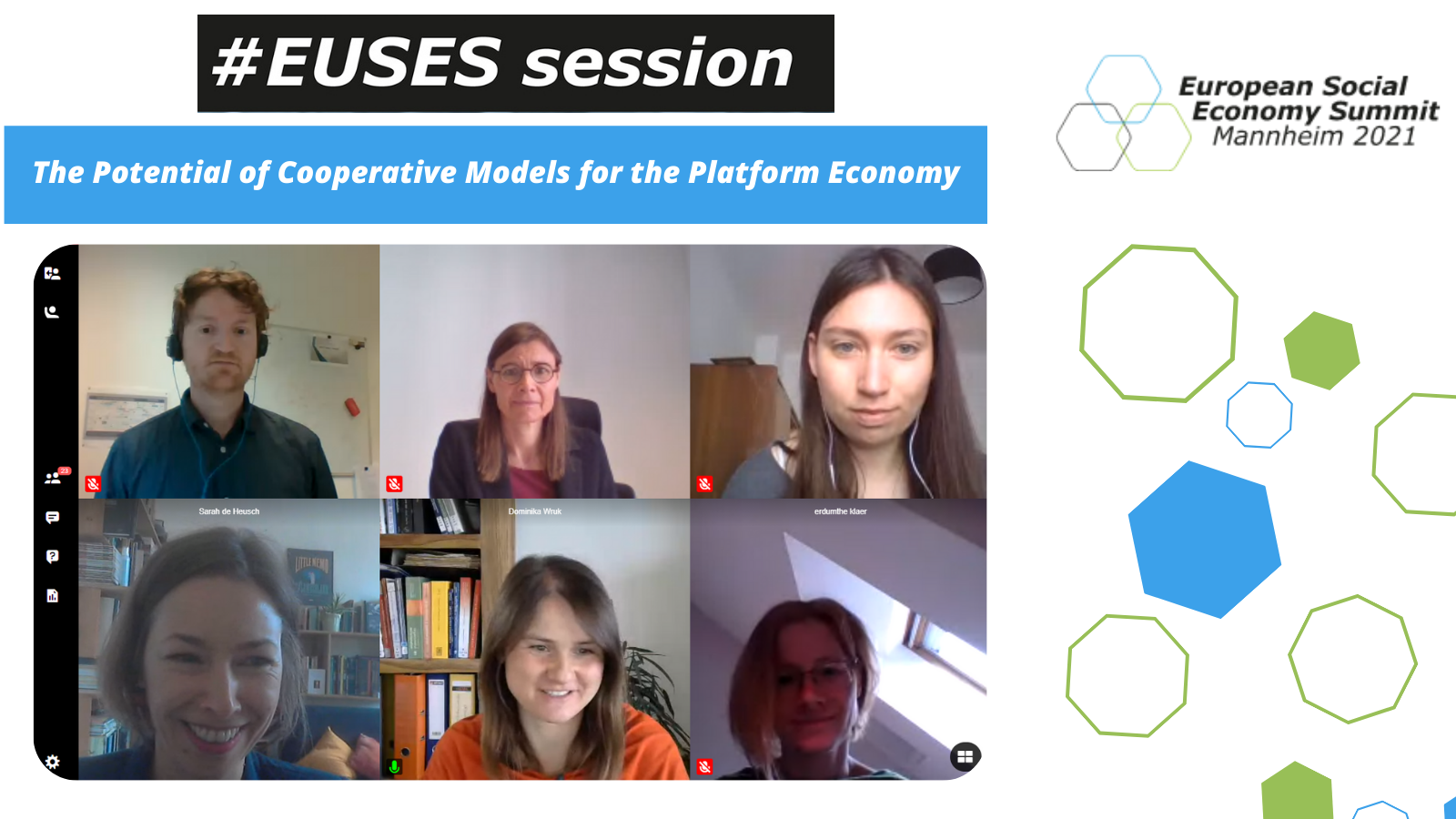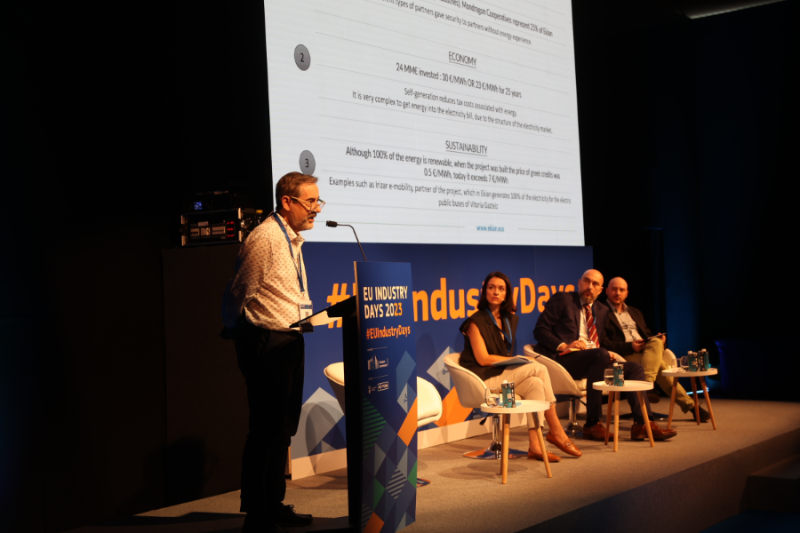On May 26th and 27th, CECOP, took part in the European Social Economy Summit organized by the European Commission and the City of Mannheim. Taking place partially in Mannheim and online, the Summit brought together 3000 participants over the course of over 80 sessions.
The European Social Economy Summit was initiated under the German EU Council presidency in 2020. Due to the pandemic, it was postponed to 2021 and took place online. The signing of the Mannheim Declaration on the Social Economy marked the highlight of the summit. The declaration lays out 10 core demands to develop the European Social Economy, and can be accessed here.
CECOP hosted a session ‘Good, Green and Democratic Jobs: the Employment Perspective of Industrial Cooperatives in the Green Transition’, moderated by CECOP Secretary General Diana Dovgan. CECOP members discussed with Sven Giegold (MEP, Greens/EFA) and Bela Galgoczi (European Trade Union Institute) strategies and pathways to a green transition of the cooperative economy.
Mr Galgoczi set the scene by summarizing how the idea of a just transition was developed in the labour movement and sketching out scenarios for cooperation between cooperatives and trade unions.
MEP Sven Giegold reiterated that the EU Green Deal must be accompanied by industrial policies that allow for industries to transform, and the Mondragon Corporation as an inspiration to develop future industrial cooperatives.
CECOP President Giuseppe Guerini highlighted that many cooperatives combine environmental and social goals of the just transition by design, for example those active in the circular economy. This testimony was accompanied by Ibon Antera Inxausti (Mondragon Corporation) and Gianluca Balducci (Legacoop Produzione Servizi), who discussed the strategies of their coopertatives and federations to manage a just transition.
CECOP was also present in other sessions during the two-day event.
Doc Servizi (Italy) organized one exploring ‘Innovative models of worker-owned cooperatives for decent work in Europe’. During the event moderated by CECOP’s Advocacy Coordinator Mila Shamku, Francesca Martinelli (Doc Servizi), Raffaella Toncelli (Coopaname) and Sarah de Heusch (Smart Belgium) discussed how cooperative models can advance decent work for independent and freelance workers.
Discussing the important role of platform cooperatives in democratizing the digital economy, CECOP member Smart (Belgium) hosted a session ‘Cooperative models for the platform economy’. With the participation of researchers and practitioners, the speakers called for the need to build a sustainable, inclusive, and fair digital economy with the help of platform cooperatives.
Lastly, Associazione ISNET organized the session 'Role of social enteprises in post Covid-19 recovery phase'. The speakers included President Guerini, and Polish member NAUWC, represented by Joanna Brzozowska-Wabik. During the session, she emphasized how education should become one of the priorities of the EU Social Economy Action Plan, and shared the outcomes of the joint workshop CECOP held with NAUWC in late 2020.











 Employment & Social Inclusion
Employment & Social Inclusion  Entrepreneurship
Entrepreneurship

